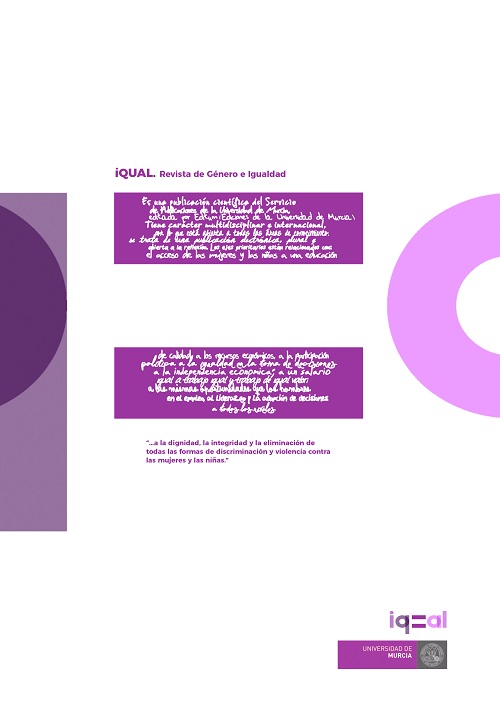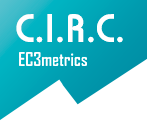Women's literature in Central Europe. A brief comparison between Jewish authors from Trieste and Austria
Supporting Agencies
- Nessuna
Abstract
The object of this work is the contribution offered to the culture of XIX and XX centuries by women writers from Trieste and Austria.
The works by Jewish authors from Trieste and Austria have been examined and a comparative analysis has been carried out.
Among the women writers from Trieste, whose identity was wakened, there are authors who carried out journalism, shown irredentism aspiration, wrote works for women and for children that didn’t overcome the passing of time. Unlike other colleagues from Trieste, some Austrian authors, who were feminists, journalists, pedagogists or political activists, wrote some text that, even nowadays, are offering some reflections
Downloads
-
Abstract472
-
pdf (Español (España))721
References
Alison, R. (2008). Jewish Women in Fin de Siècle Vienna. Austin: University of Texas Press.
Ausländer, R. (2013). Hoffnung IV. In B. Nolz, W. Popp, Leben im Zeichen von Verfolgung und Hoffnung. Jüdische Autorinnen und Autoren in der neueren deutschen Literatur (pp. 90-91). Berlin: LIT Verlag.
Bannasch, B. (2002). Zittern als eine Bewegung des Widerstands: Veza Canettis frühe Erzählungen „Geduld bringt Rosen“ und der Roman „Die Gelbe Straße“. In H. L. Arnold, H. Göbel (a cura di): Veza Canetti (pp. 30-47). München: edition text + kritik.
Bauman, Z. (2002). La società individualizzata (trad. di Giovanni Arganese). Bologna: il Mulino.
Benussi, C. (2011). Schrift, Weiblichkeit und kulturelle Identität. Jüdische Schriftstellerinnen Triests im 20. Jahrhundert. In A. A. Wallas (a cura di), Jüdische Identitäten in Mitteleuropa. Literarische Modelle der Identitätskonstruktion (pp. 269-282). Tübingen: Niemeyer.
Bertocchi, M. (2006). La lingua salvata di Veza Canetti. Vita e opere di una scrittrice viennese. Milano: CUEM.
Catalan, T. (2020). The Construction of the Enemy in Two Jewish Writers: Carolina Coen Luzzatto and Enrica Barzilai Gentilli. In M. Baumeister, Ph. Lenhard e R. Nattermann. (a cura di), Rethinking the Age of Emancipation. Comparative and Transnational Perspectives on Gender, Family and Religion in Italy and Germany, 1800-1918. New York, Oxford: Berghahn Books.
Covacich, M. (19 agosto 2011). Trieste, la Mitteleuropa anomala. l'Espresso. Estratto da https://espresso.repubblica.it/visioni/cultura/2011/08/19/news/trieste-la-mitteleuropa-anomala-1.34474
Curci, R., Ziani, G. (1993). Bianco, rosa e verde. Scrittrici a Trieste fra ’800 e ’900. Trieste: Lint.
De Nicola, F., Zannoni P. A. (2002). La fama e il silenzio. Scrittrici dimenticate del primo Novecento. Venezia: Marsilio.
Grossman, D. (2000). La memoria della Shoah. Intervista di Matteo Bellinelli. Bellinzona: Casagrande.
Herlitz, G. Kirschner, B. (1930). Jüdisches Lexikon. Ein enzyklopädisches Handbuch des jüdischen Wissens in vier Bänden. Berlin: Jüdischer Verlag.
Jokl, A.M. (1997). Die wirklichen Wunder des Basilius Knox. Ein Roman über die Physik für Kinder von 10 bis 70 Jahren. Nachwort von Oskar Kokoschka. Frankfurt/Main, Leipzig: Insel Verlag.
Oz, A., Oz-Salzberger, F. (2013). Gli ebrei e le parole. Alle radici del'’identità ebraica (trad. di Elena Loewenthal). Milano: Feltrinelli.
Stolfi, V. (2007). La collaborazione giornalistica di Flavia Steno con il “Secolo XIX” e “La Chiosa”, Milano: Lampi di Stampa.
Travers Antona, C. (1885). Prefazione. In V. Peri, Della critica letteraria moderna. Bologna: Zanichelli.
Voghera, G. (1980). Gli anni della psicanalisi. Pordenone: Studio Tesi.
Ziegler, M. (8 giugno 2014). Sie hätte noch Ideen gehabt. Wiener Zeitung. Estratto da https://www.wienerzeitung.at/nachrichten/reflexionen/vermessungen/574998-Sie-haette-noch-Ideen-gehabt.html?em_cnt_page=1
Copyright (c) 2021 Servicio de Publicaciones Universidad de Murcia

This work is licensed under a Creative Commons Attribution-NonCommercial 4.0 International License.








